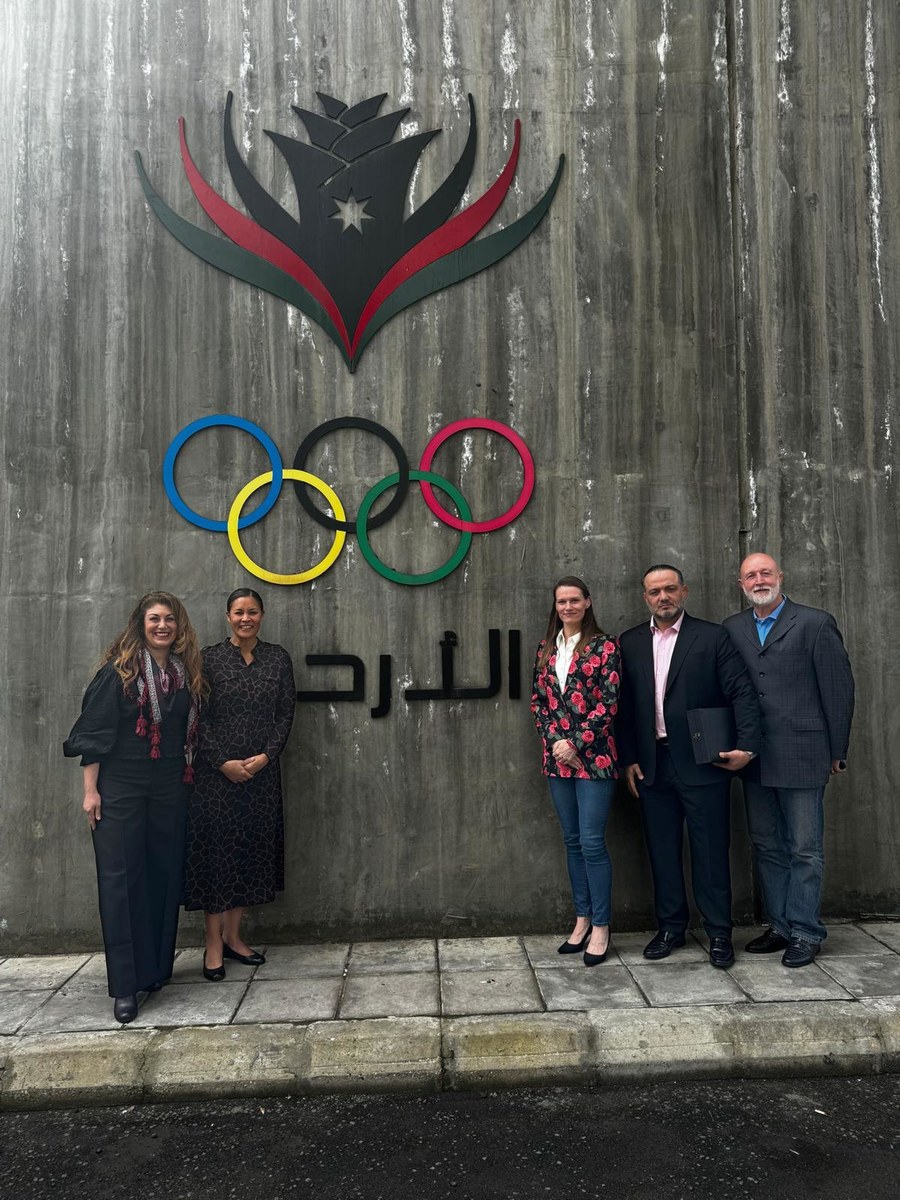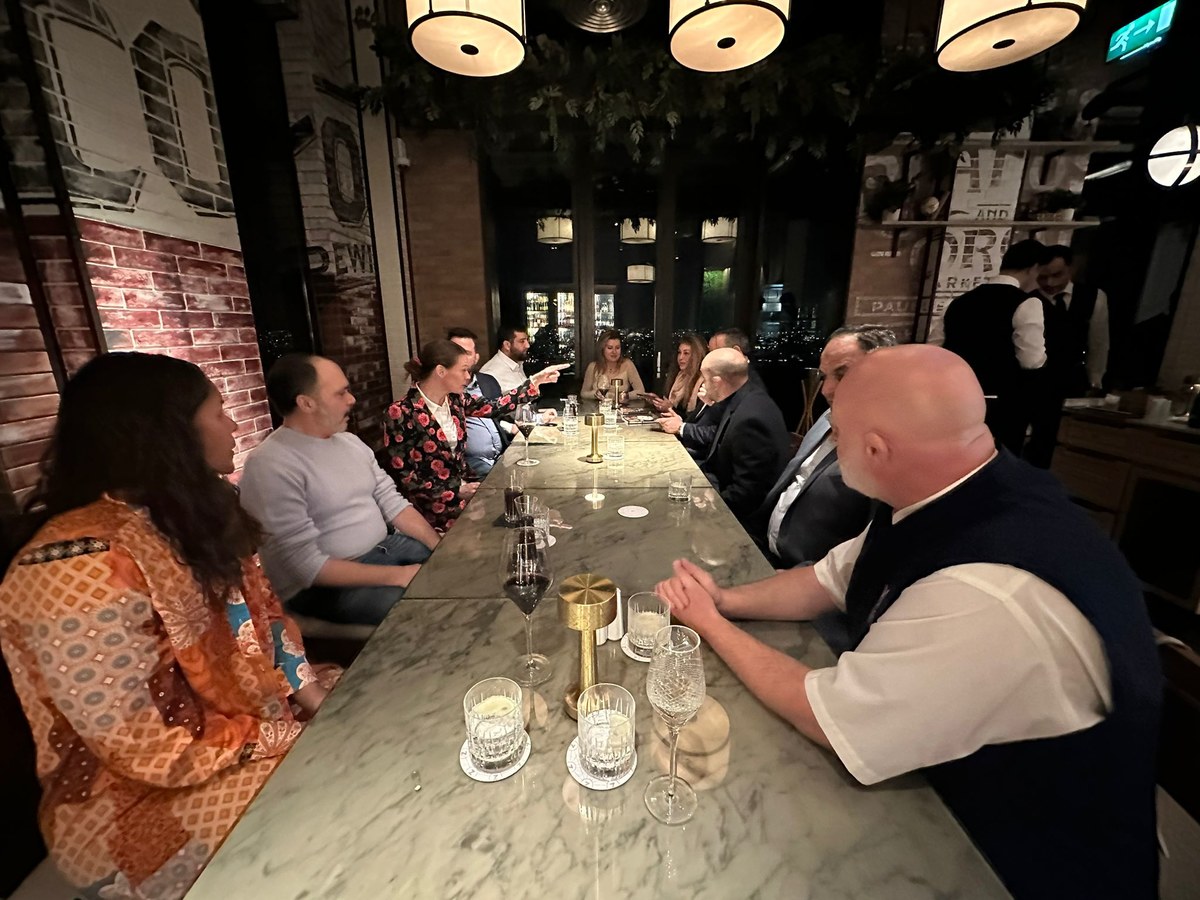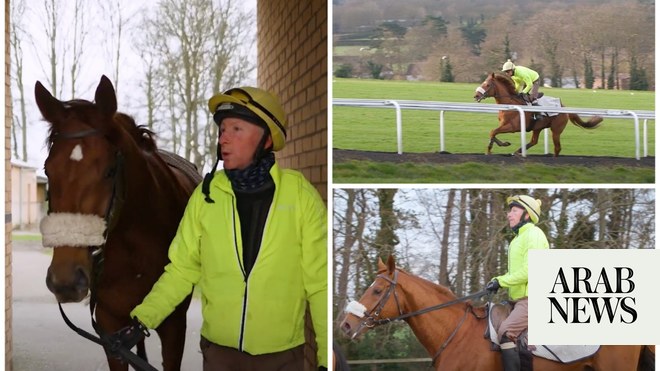AMMAN: Jordan, the Middle East and Asia are in for a major treat early this summer. The first Arab Women’s Wrestling Championship will be held in May followed by the Asian Wrestling Championship in June — all in the capital Amman.
Wrestling is one of the world’s oldest sports, but female wrestling, now among the fastest-growing athletic pursuits in many parts of the planet, is relatively new. Women’s wrestling became an Olympic sport a little over two decades ago when it was approved for the 2000 Games in Japan.
In Jordan, women’s wrestling began just two years ago and has already made huge progress, according to Iran-born world medalist Afsoon Johnston, who was gushing in praise for the nation’s female athletes during her visit to the country in February. “I was pleasantly surprised that in such a short time how much progress has been made. I am excited about the future of girls and women’s wrestling in Jordan,” she told Arab News.
Johnston hopes this will be the first of many visits, calling Jordan a “beautiful and hospitable country.” She, along with several other world-class women wrestlers, held wrestling clinics and met the country’s top sports leaders as Jordan prepares to host the two big regional female events.
Rana Al-Saeed, secretary-general of the Jordan Olympic Committee, told Arab News that the Jordan Wrestling Federation began to revive female wrestling by forming national teams. “They contributed to shedding more light on this sport and encouraging girls in Jordan to learn about this sport first and then motivate them to practice it,” she told Arab News. Al-Saeed said that the Jordan Olympic Committee supports the wrestling federation’s bid to develop the sport for men and women.

The responsibility for the success of the sport falls on the shoulders of Mohammed Al-Awamleh, president of the Jordan Wrestling Federation. His vision and perseverance have already created significant momentum. “We have more than tripled the number of Jordanian clubs participating in wrestling from six to 21, and the number of certified women wrestling referees has nearly doubled from nine to 19,” he said.
Dan Russell, a former wrestler who has made Amman his home for the past five years, has assisted in developing the sport in the country and the region. “As the ambassador for Wrestling for Peace in Jordan, I am proud of the hard work and intentional grassroots efforts to grow opportunities for boys and girls to participate in the sport of Olympic wrestling. I am committed to helping the Jordan Olympic Committee and the Jordan Wrestling Federation accomplish their outstanding efforts. It was my honor to introduce the Jordan Wrestling Federation to some of the best global leaders in the sport of wrestling.”
Russell, who is also board secretary of the US Wrestling Foundation, says that the idea of getting women in the Middle East to wrestle professionally is a goal of the NGO he runs. “This Wrestling for Peace initiative included outstanding delegates from Titan Mercury Wrestling Club, Hoomanities, and Wrestle Like a Girl, bringing their expertise to support the growth and development of Olympic wrestling in the Hashemite Kingdom of Jordan.”
Al-Awamleh and Russell are not the only ones working for women’s wrestling. Jordanians in leadership positions are also supportive. Sally Roberts, CEO of Wrestle Like a Girl and two-time women’s wrestling world medalist, was excited to fulfill an invitation by her former board member to visit Jordan and meet some of them.

In Amman, Prince Ali Ben Hussein, the chair of the Jordanian Football Federation and brother of King Abdullah, invited Roberts and the entire group of world-famous wrestlers to dinner the same day Jordan’s football team returned from gaining the silver medal in the Asia Cup in Qatar. Roberts praised the development of the sport in Jordan, calling it “an exemplary example of the promise and possibilities for the girls and women in the region and worldwide. From the wrestling mat to the boardroom, women’s leadership is on the rise, and we look forward to working with all communities to make the hopes and dreams of everyone a reality.”
But despite Jordan’s upbeat attitude regarding the big championships they will be hosting, it is clear that many women will not be able to participate in the sport. Dress codes, set by the Swiss-based United World Wrestling Association make it difficult for devout Muslim women to participate. The traditional Islamic headcover, the hijab, is forbidden, as are uniforms with long sleeves. Al-Awamleh, however, is not overly concerned. “I know that these are difficult requirements that will mean we will not be able to include many good athletic women on our rooster, but we are confident that we can eventually reverse this rule.”
Al-Awamleh’s confidence comes from the fact that Prince Ali had successfully reversed a similar dress code by FIFA for women’s football players. “One of the things we are hoping that the UWW leadership will realize when we host the championship is the importance of this sport and the need for it to be inclusive to all athletes and not to discriminate against some for their religious attire.” Asian countries like Iran have always done well in men’s wrestling championships, but as Afsoon says in a book distributed in Jordan about her life, it will take some time before we see Iranian women on the mat.
One person who may help sway the UWW board is US wrestling celebrity, Hooman D. Tavakolian, also of Iranian origin and part of the visiting delegation to Jordan. Tavakolian is an accomplished wrestler, businessperson, and member of the UWW board. Founder of the Hoomanities NGO, and board member of the Mercury Titan Wrestling Club, Hooman explains the attitudes he witnessed during his visit to Jordan which he says left “indelible marks” on his heart.
“The spirit, fortitude, and vision of the Jordanian Wrestling Federation to grow the opportunities for women in wrestling at all levels and welcoming all women in Jordan to the wrestling mat is an example for the rest of the region and world to emulate. The warmth and generosity of the people of Jordan are incredible and I am honored to have been welcomed. I am so excited for the future of women’s wrestling in Jordan and for the inclusion of all Jordanian and Arab women who wish to participate in this sport that builds resilience, character, and confidence.”
At the end of the visit to Jordan, the American wrestling-related NGOs signed agreements with the Jordan Wrestling Federation, aimed at strengthening cooperation. They will exchange experts — coaches, wrestlers and referees — and participate in the camps, conferences and championships in Jordan and the US. Wrestle Like a Girl will support a coach from the US for six to 12 months in Jordan and will provide scholarships from a recognized university in the US for the athletes. Critically, all US-based NGOs have committed to support the project of allowing female athletes with hijab to participate in international tournaments.
Speaking to reporters at the end of the visit Roberts said wrestling was more than just a sport. “Win or lose, for many women wrestling is an important step in building confidence, self-esteem, and knowing that she can always defend herself in any circumstance.”

Leave a Reply